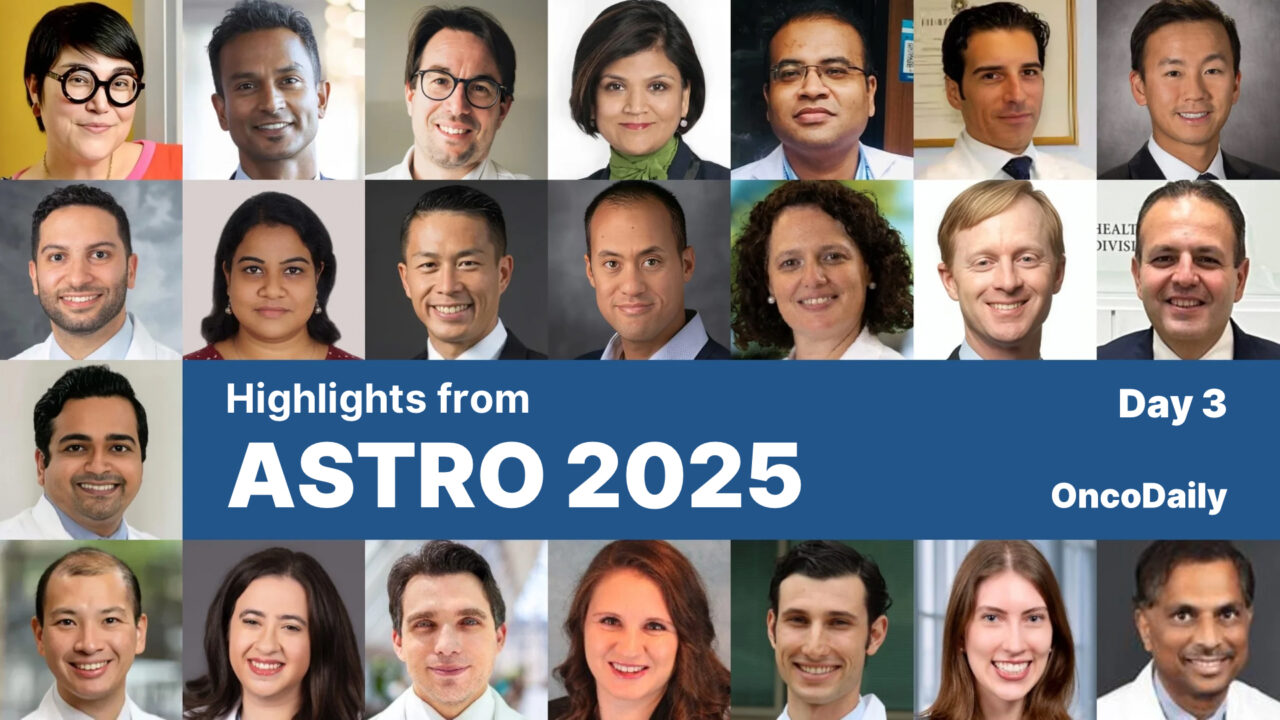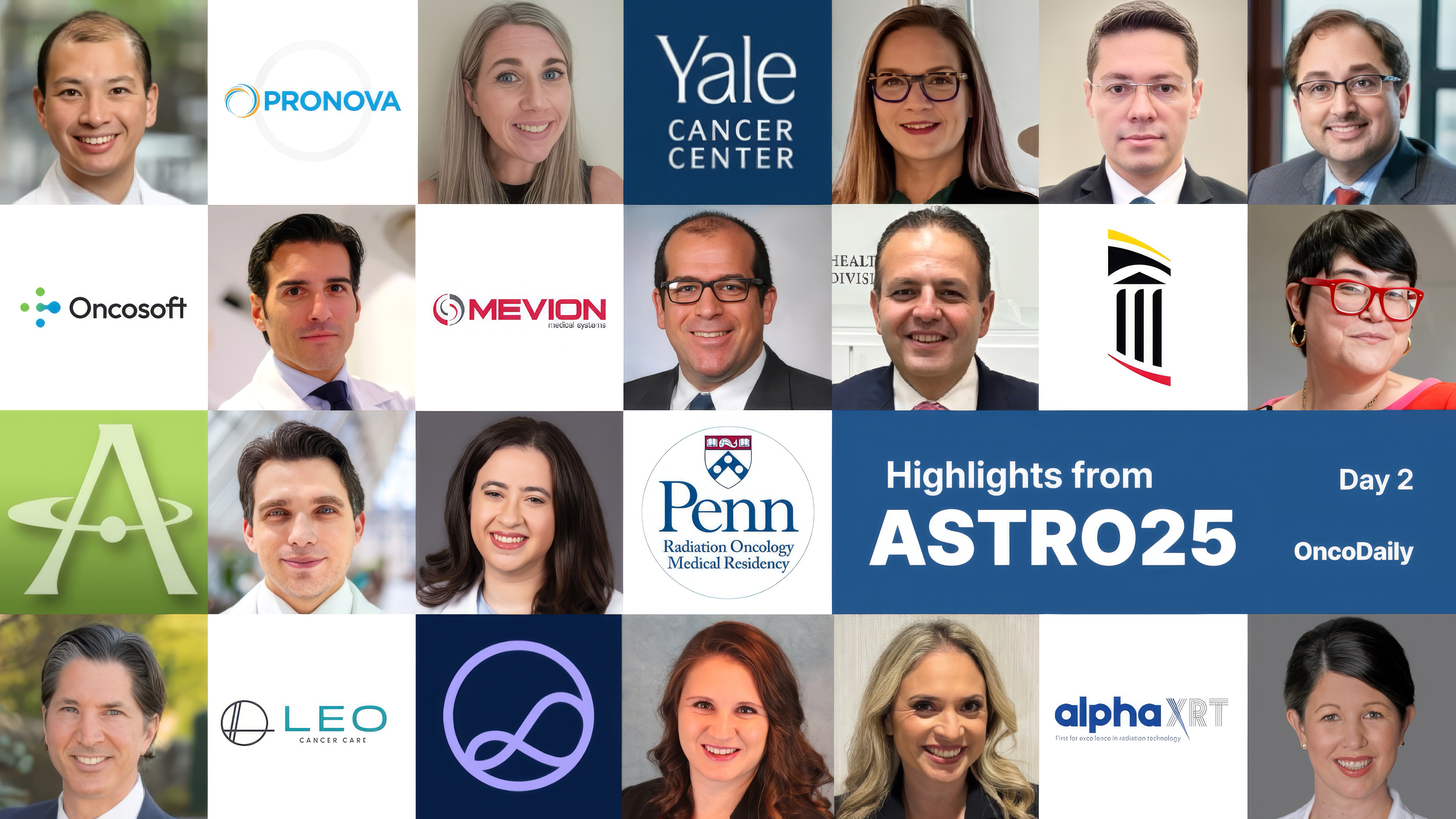The 67th Annual Meeting of the American Society for Radiation Oncology (ASTRO25) takes place in San Francisco from September 27 to October 1, 2025, at the Moscone Center.
This premier gathering unites radiation oncologists, researchers, and industry leaders from around the globe. Tailored for radiation oncologists, medical physicists, radiation therapists, and oncology professionals, ASTRO 2025 presents an extensive program aimed at reimagining radiation medicine, investigating emerging clinical applications, and advancing research and patient care in radiation therapy. Attendees can look forward to state-of-the-art scientific sessions, engaging educational presentations, and exhibits highlighting the latest innovations in radiation oncology.
Our team at OncoDaily has selected a few posts from ASTRO25 Day 3 that you should not miss!
“Welcome to ASTRO25 Day 3! Read today’s Daily News with highlights and coverage including featured events, recaps and expert commentary of many abstract presentations and sessions.”
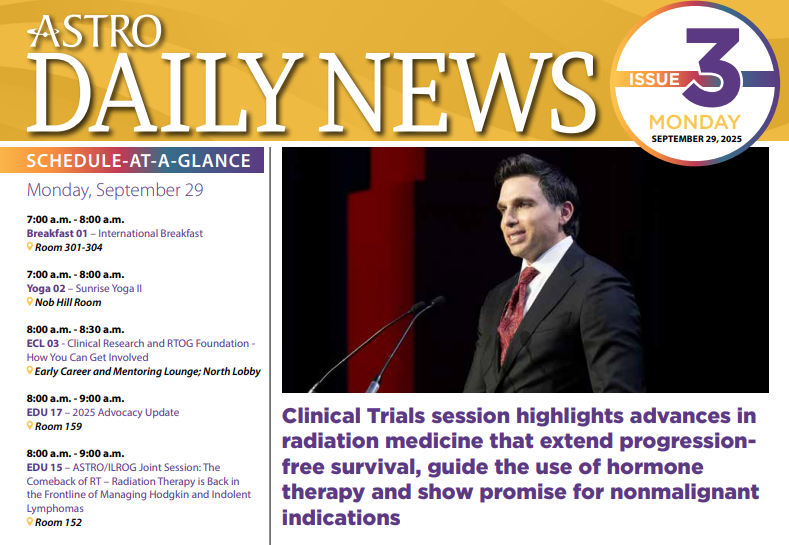
“ASTRO25 is for cutting edge science, bold ideas, innovative tx paradigms, patient-centered frameworks, and translational work that advances future cures. It is ALSO for fellowship, catching up with colleagues/friends, and fostering the growth of the next leaders in Radiation Oncology.”
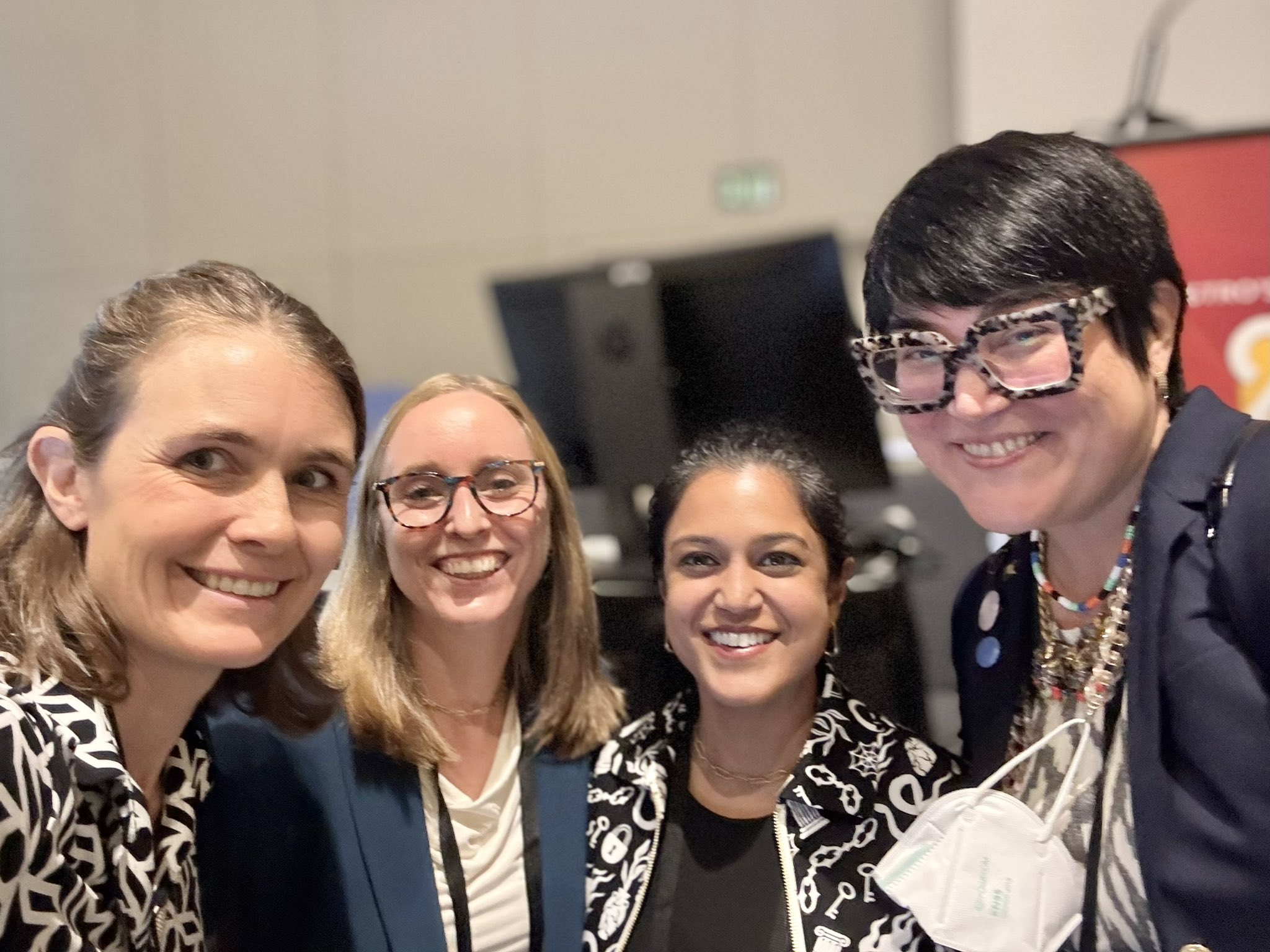
“NRG GU005 RCT of IMRT vs SBRT in low-intermediate risk prostate cancer.. better bowel outcomes but survival similar (?!!)
Did PACE-B get it better with the dose?”
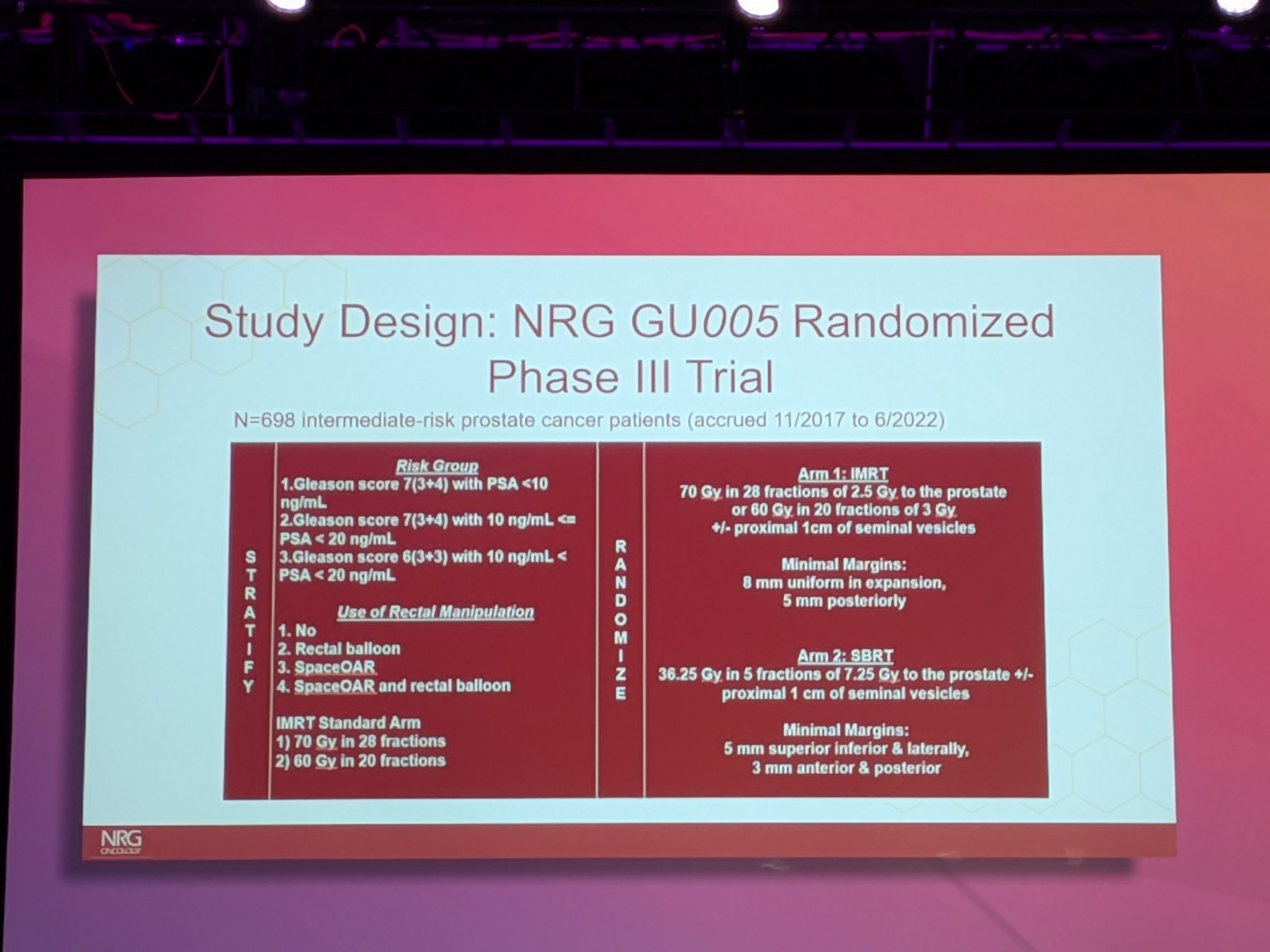
Primary results from Ph3 RCT SBRT vs HFX in IR-PCa GU005 showed aside from improved GI tox with SBRT, there was no diff in primary urinary HRQoL 24m, or DFS/OS 5y. While we await longer term data, SBRT may be a reasonable option for certain pts given convenience.”
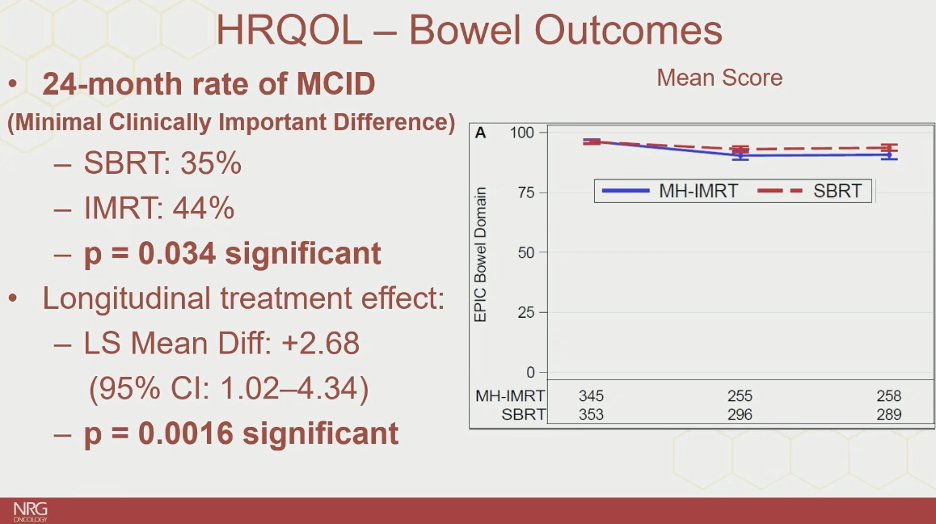
“ASTRO2025 Plenary.
Congrats to TORPEDO investigators led by David Thomson.
Excellent discussion by Vinita Takiar.
Lots to chew upon but while not the Main endpoint, there were differences at post- and 6w post-RT in favour of Protons IMPT Relevant to patients?”
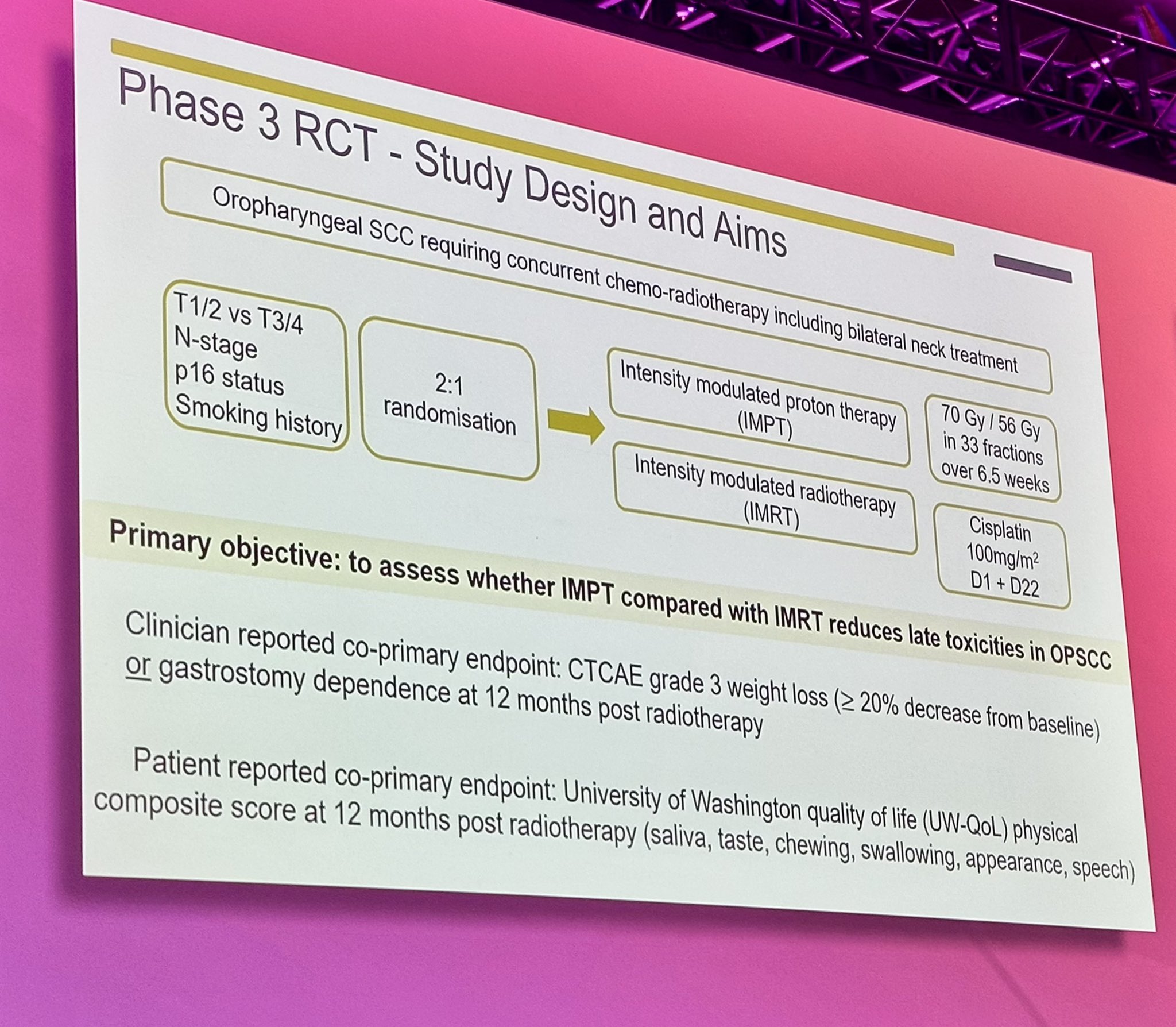
“Honored to present at ASTRO25 on hippocampal ADC changes during RT and their link to cognition. Grateful to receive the Basic/Translational Science Abstract Award for this work. Proud to represent MD Anderson Cancer Center and our amazing team With Amazing mentor Caroline Chung.”
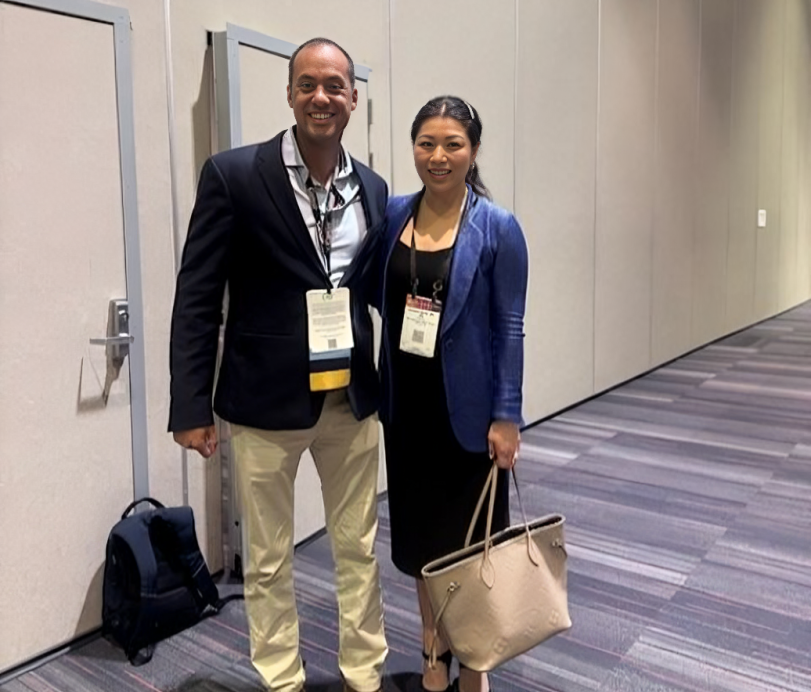
“Thank you ASTRO for the opportunity to join the faculty this year! A real pleasure to discuss concomitant radiation and modern systemic therapy in breast cancer – great challenges and great fun with amazing colleagues.”
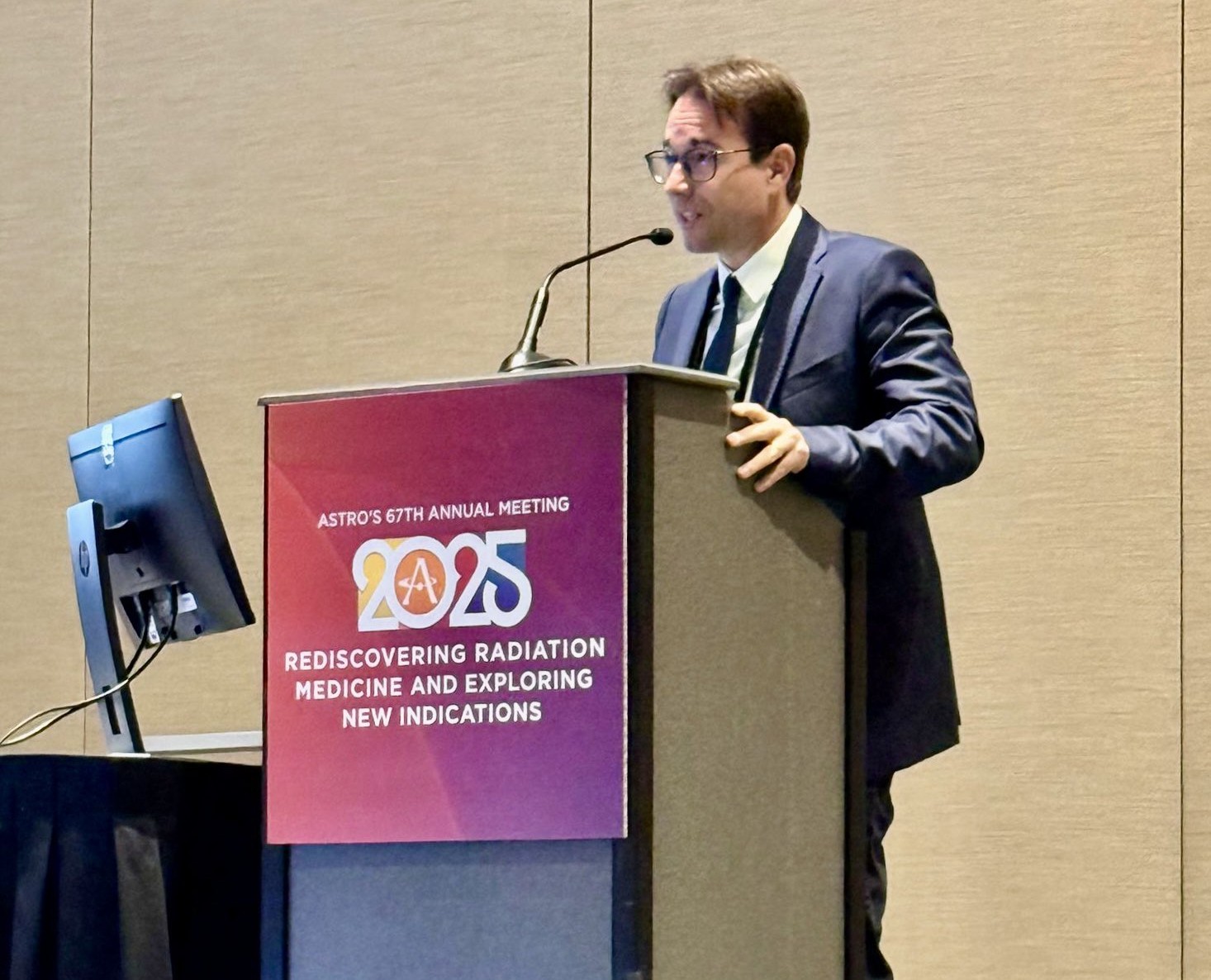
“IMRT soundly solid against IMPT for head and neck cancers! Lower dose with protons but no clinical difference!
All toxicity and QOL outcomes similar.
NTCP modeling based enrichment also showed no difference.”
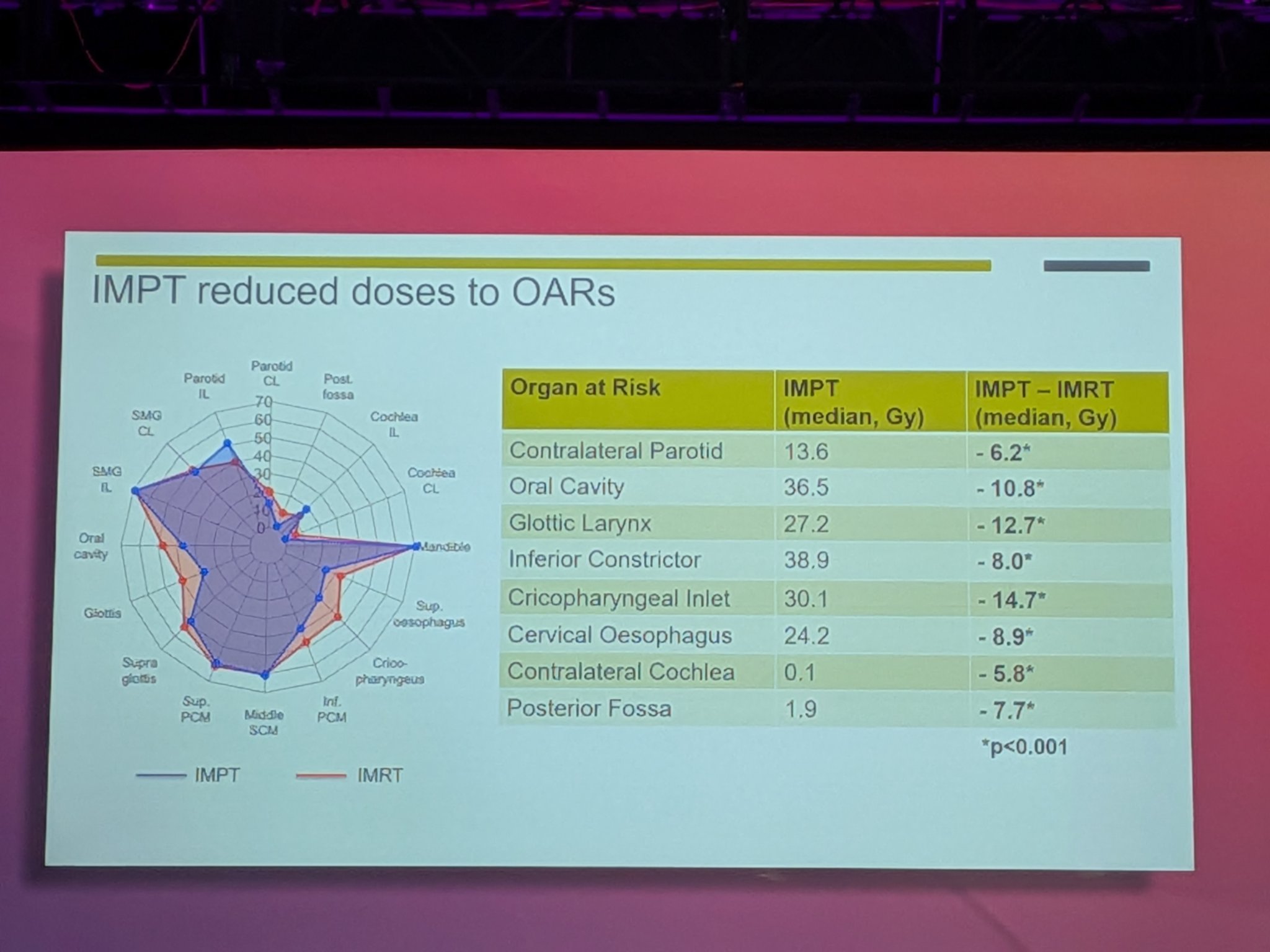
“I know it’s late on Monday, but sharing the joy of seeing Jerry Jaboin & Shankar Siva. 2 stellar Radiation oncologists with 1 big fan. You’re welcome.”
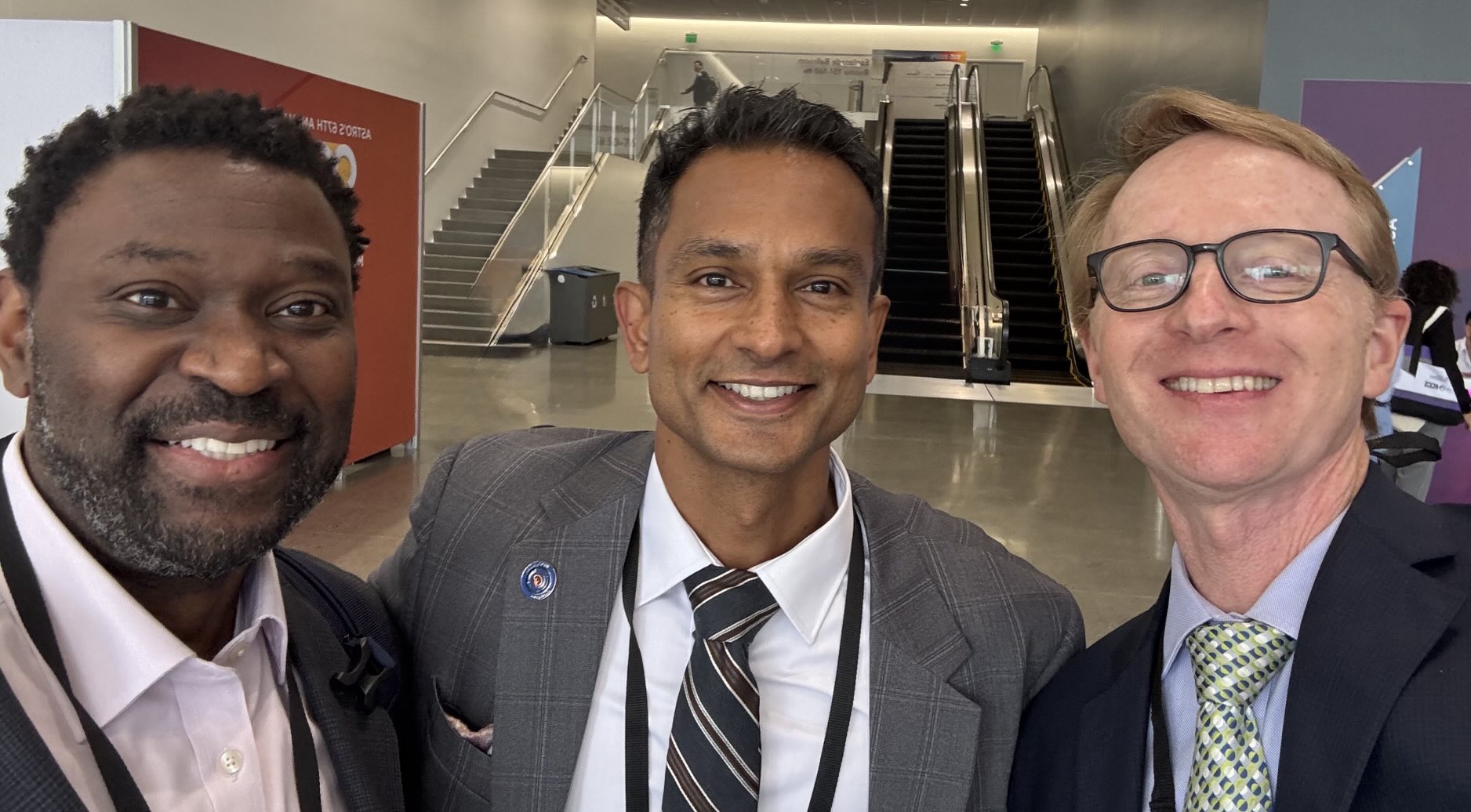
“Thrilled to welcome the inaugural group of ASTRO Ambassadors! These global leaders will drive education, collaboration and best practices in Radiation Oncology worldwide. Exciting times ahead for Global Oncology!”
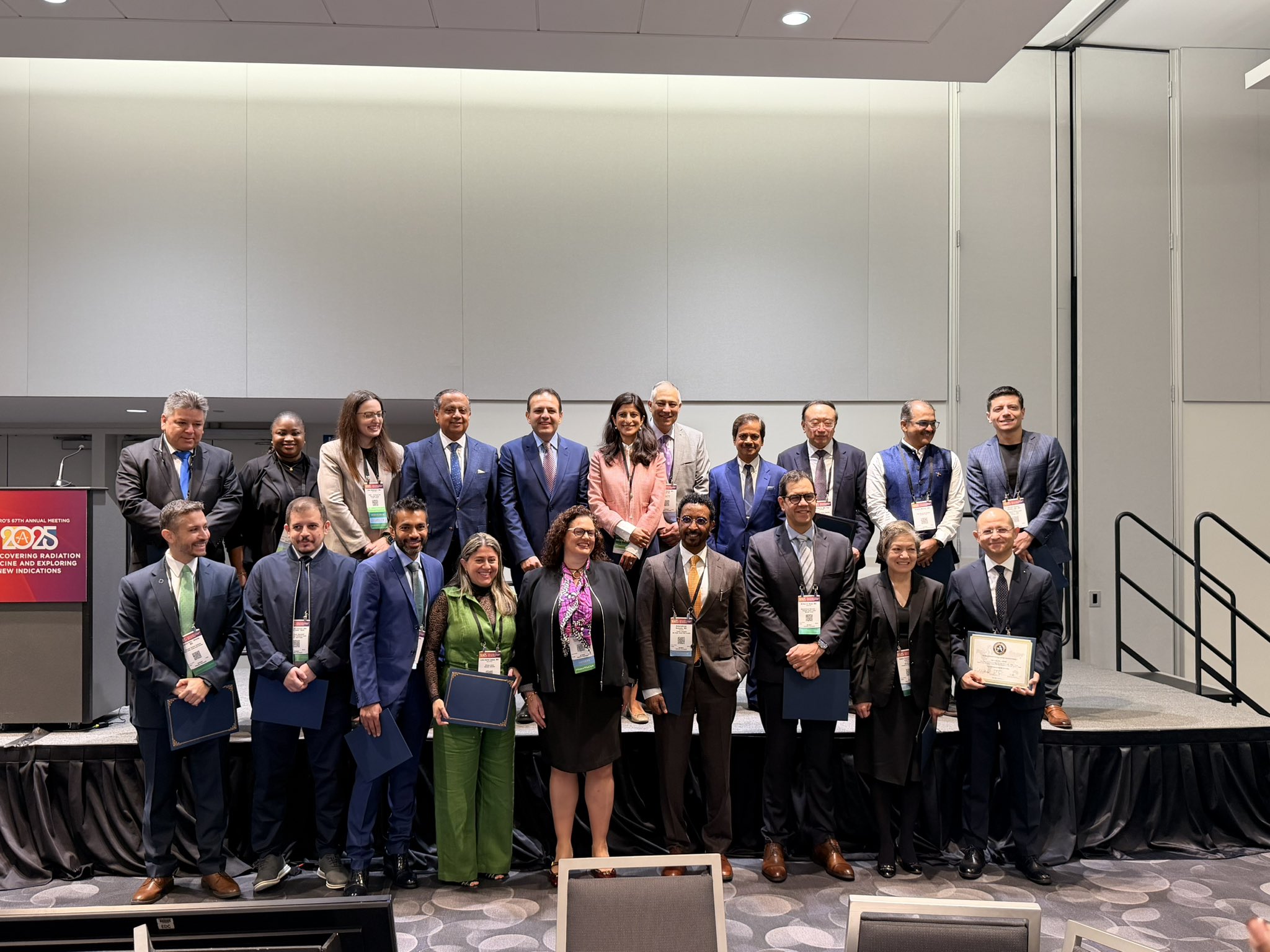
Penn Radiation Oncology Residency:
“Big shoutout to our amazing Penn Radiation Oncology resident Zayne Belal, MD presenting his poster at ASTRO2025 in San Francisco! We’re beyond proud to see their hard work and brilliance shine on the big stage.”
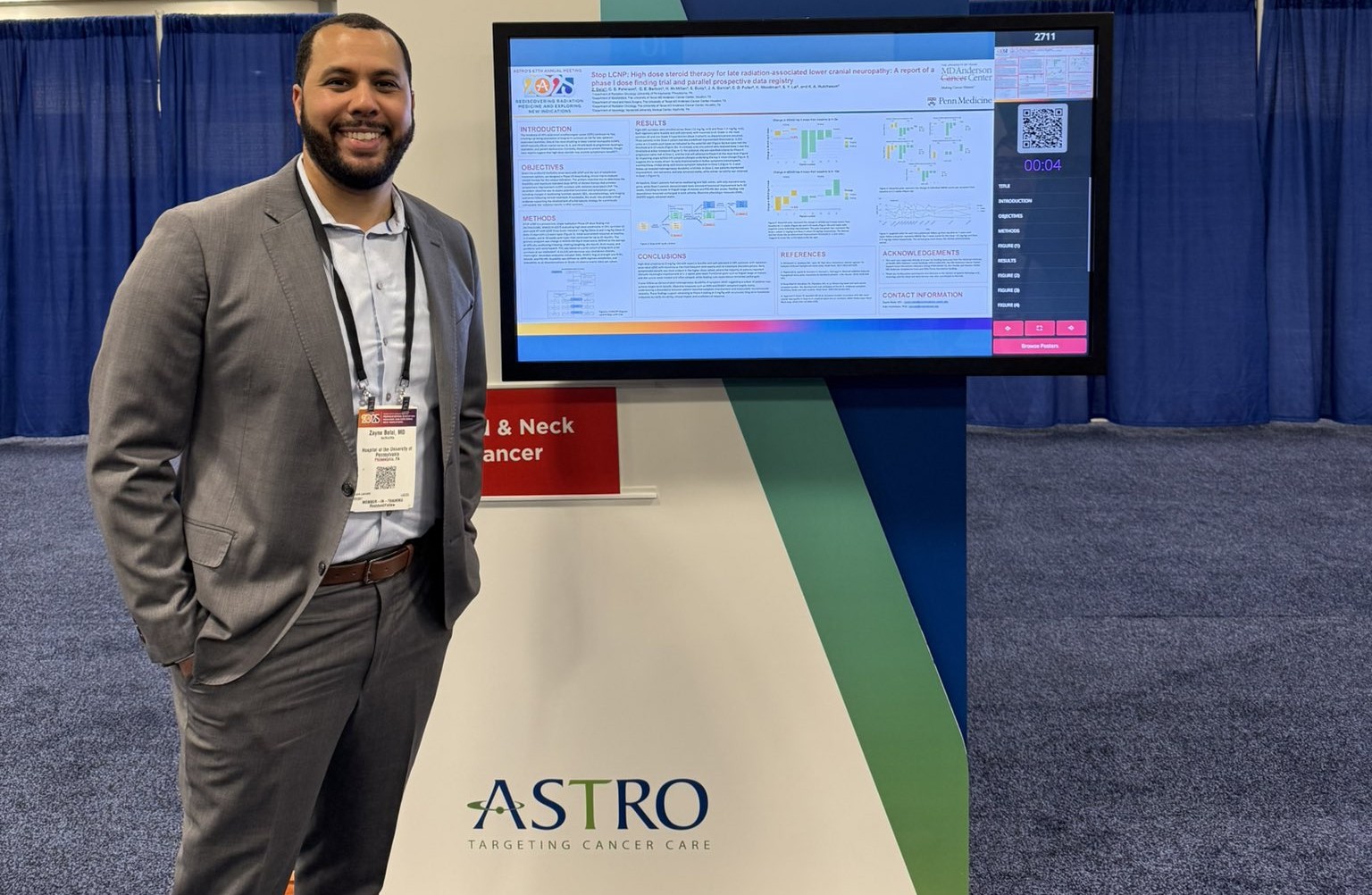
Edward Christopher “Chris” Dee:
“So proud of Yingzhi Wu, from the MSK Cancer Center Radiation Oncology Department head and neck service, who presented our work on PEG rates among patients with head and neck cancers.”
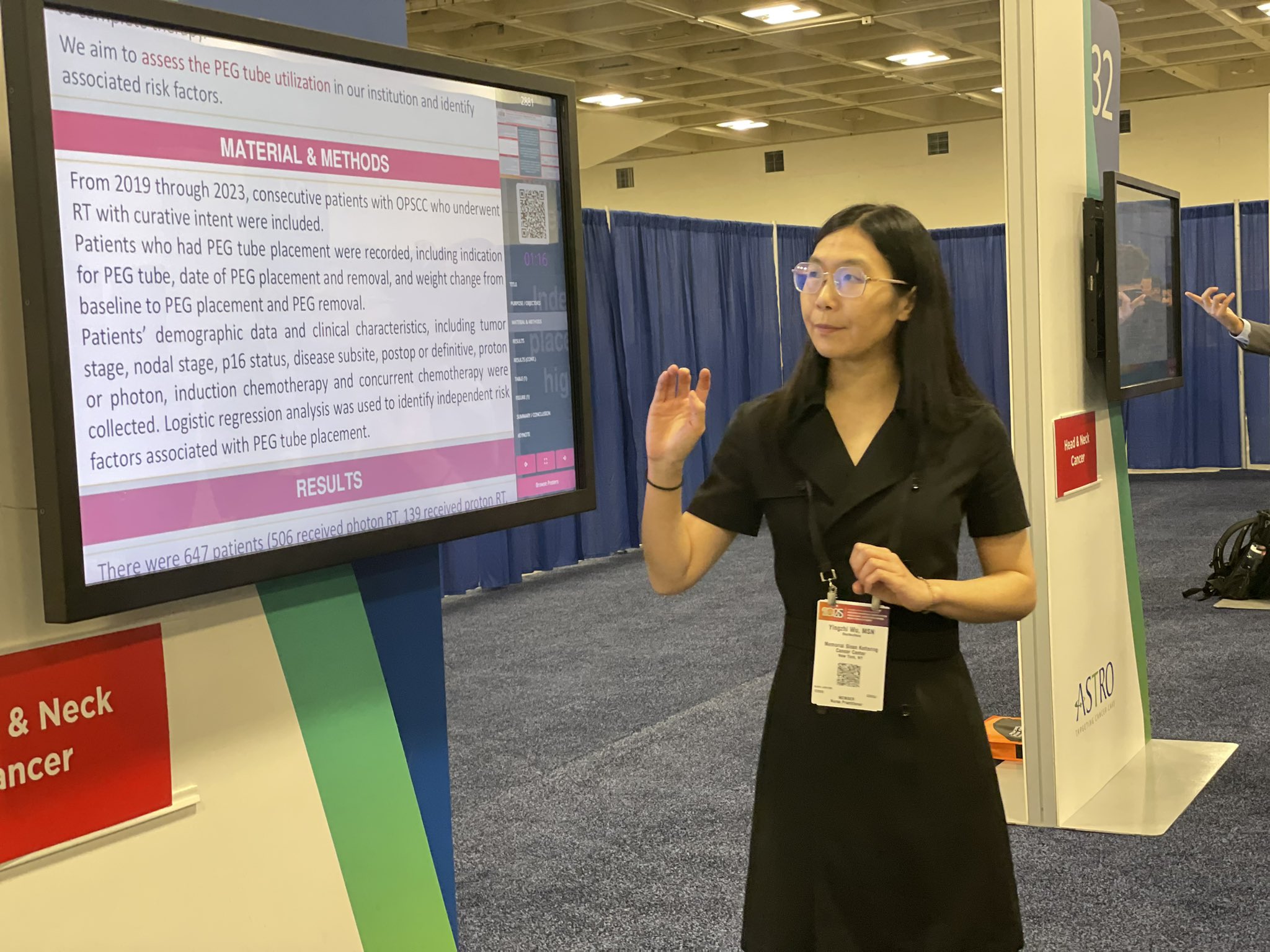
“Singapore, Australia, Canada, Italy in a single table. ASTRO2025 is also this combo of international connections and moments of relax.”

“We have one positive HNSCC trial out of MD Anderson Cancer Center, but now another trial challenges these results with arguably less bias. How do we reconcile these vastly different results?”
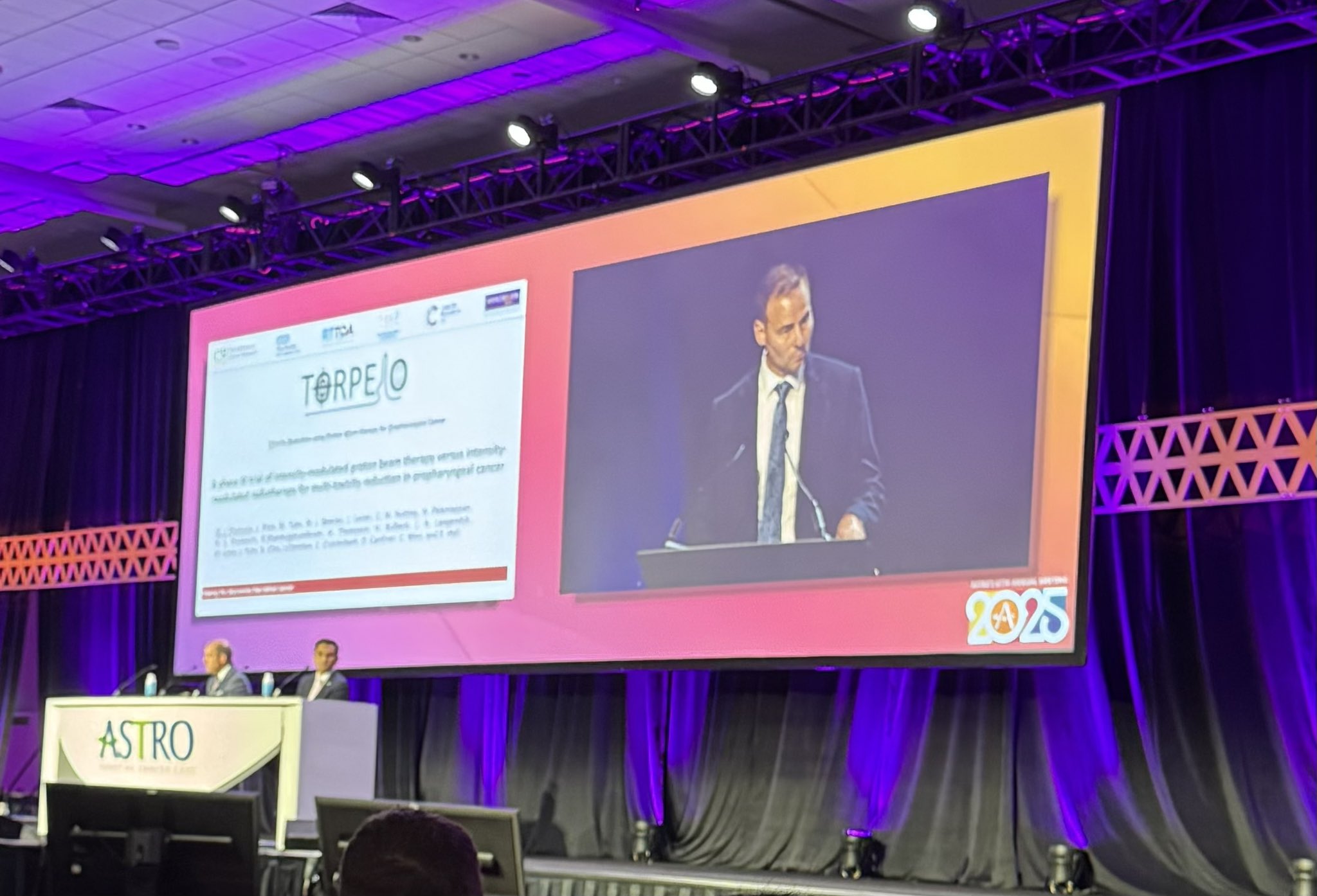
“BART Ph3 RCT in hrMIBC showed adj XRT op bed + pelvis have SS improvement in 2y LRFS (despite N+, T3) with no isolated LRR. Also notable clinically meaningful improvement in DFS and OS, though not SS. New SOC? Future adding IO to adj RT?”
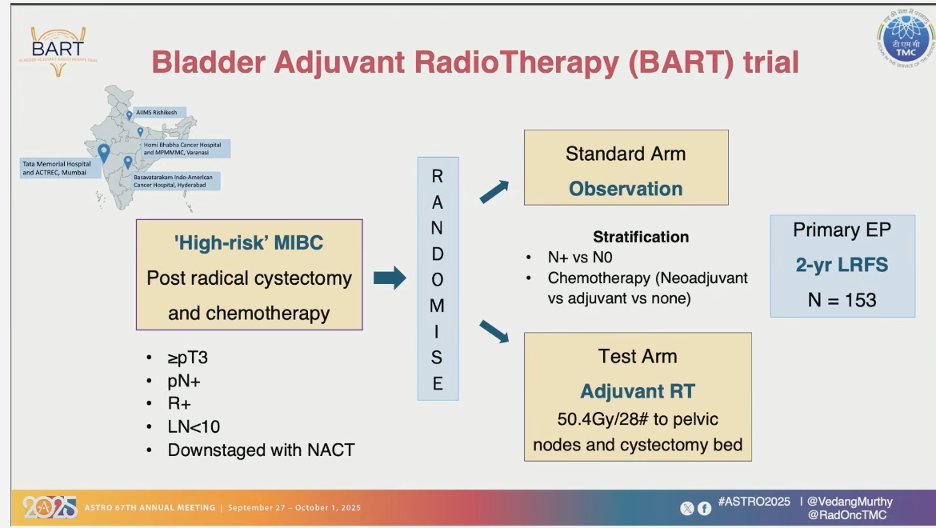
“Such an incredible session on Disparities in Gynecologic Cancers in the Era of Molecular Profiling! It is clear that knowledge is power in this space, but we must actively work to engage with our community to not exacerbate existing health disparities.”
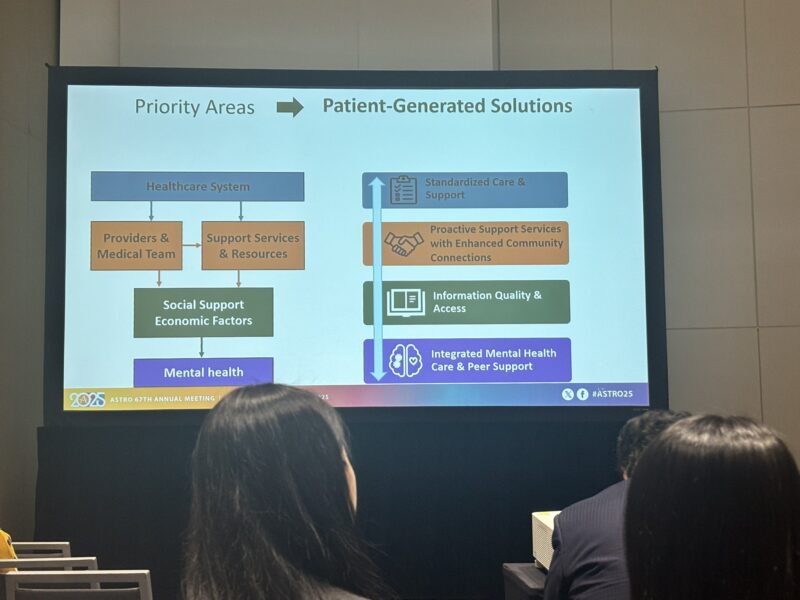
“Go Vedang Murthy.
Finally will see a randomized trial of adjuavnt RT in bladder cancer! Congratulations on your plenary for BART!!”
“Dr Justin M. Barnes at ASTRO25 on pain control in cancer survivorship. Nearly ~half have QOL limiting pain & 2016 rx laws didn’t change this greatly. Those who historically face access barriers (AYAC & Black survivors) may have been helped by the national law however.”
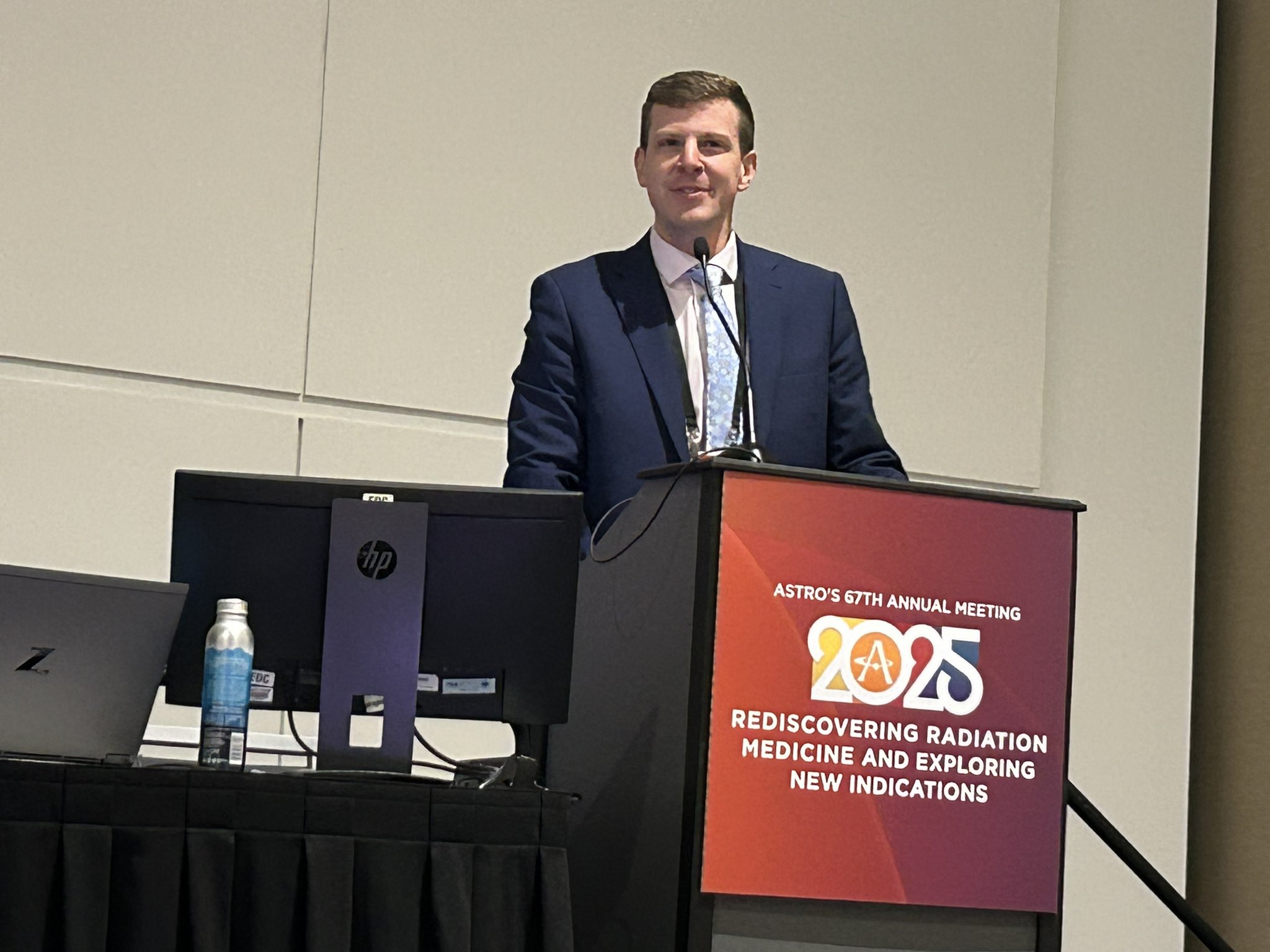
“Thanks to ASTRO and Radiation Oncology Institute, an incredible honor to have our work acknowledged by such a respected community. I’m also deeply grateful to my mentors, collaborators, and patients who made this work possible.”
“NRGGU005 Phase III: 698 pts with intermediate-risk Prostate Cancer RCT; SBRT (n=353) vs M-IMRT (n=345).
SBRT → better bowel HRQOL (MCID 35% vs 44%, p=0.03).
No diff in urinary HRQOL; EPIC continence favours SBRT
No futile for DFS; IMRT had 3-yr
biochemical failure (4.2% vs 7.8%)
SBRT safe, better QoL, but not superior for DFS.”

Penn Radiation Oncology Residency:
“Inspiring mentorship in action at ASTRO2025.
Drs. James Metz and John Plastaras connecting with a Holman Pathway medical student applicant, sharing insights on the future of Radiation Oncology and physician-scientist training. Booth#3411.”
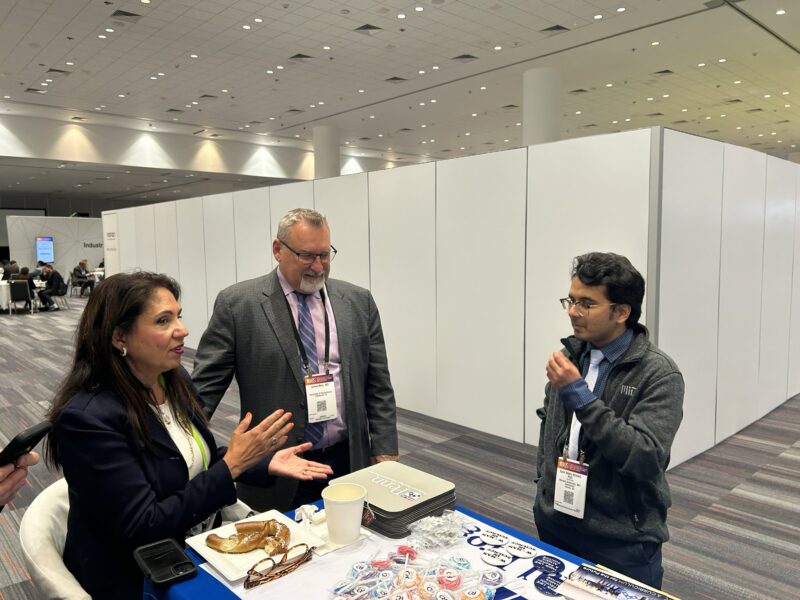
“GU005: Intermediate risk prostate cancer -> SBRT (36.25/5) vs IMRT (70/28, 60/20).
Cumulative biochemical failure lower at 3 y in IMRT as compared to SBRT (4.2%, 95% CI: 2.3-7.0 vs. 7.8%, 95% CI: 5.2-11.0).
Wow even at 3 years up to ~9% higher recurrence with SBRT!
3-year DFS also going the wrong way with SBRT also.
88.6% (85.2-92.1) for SBRT 92.1% (88.9-95.2) for IMRT.
Wow; between this and PACE-B, not looking good for SBRT.”
“This morning during international breakfast we have receive recognition and responsibility from ASTRO to make radiotherapy research and learning a better accessible treatment in Mexico you will hear new things at ASTRO25.”
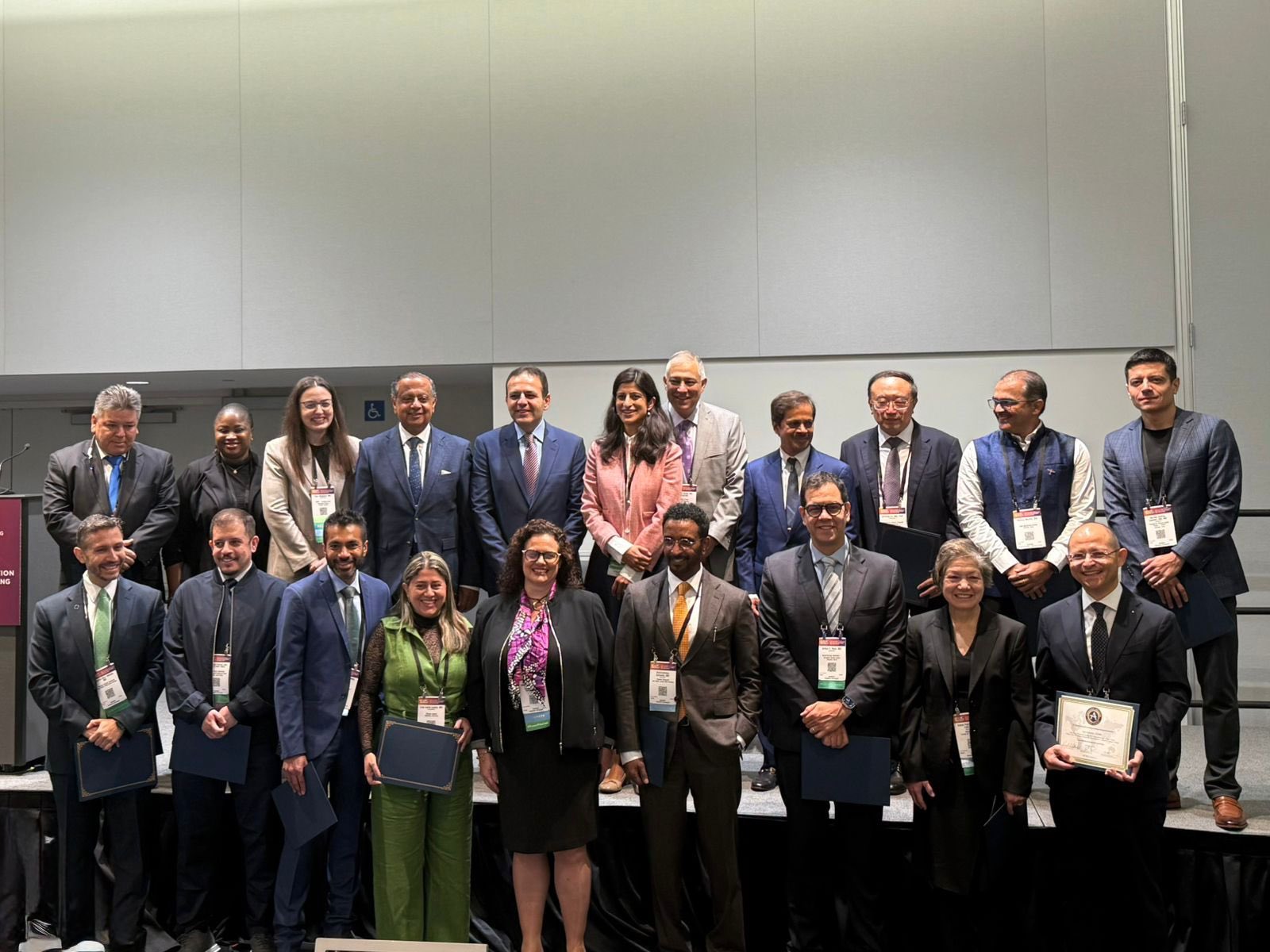
“HA-WBRT+ SIB when compared to SRS/fSRT forms a standard trade-off for neurocognitive function/quality of life and intracranial control in Brain Mets … Congratulations Dr Souvik Sankar Das and Amitabh Ray for the Best International Abstract Award.”
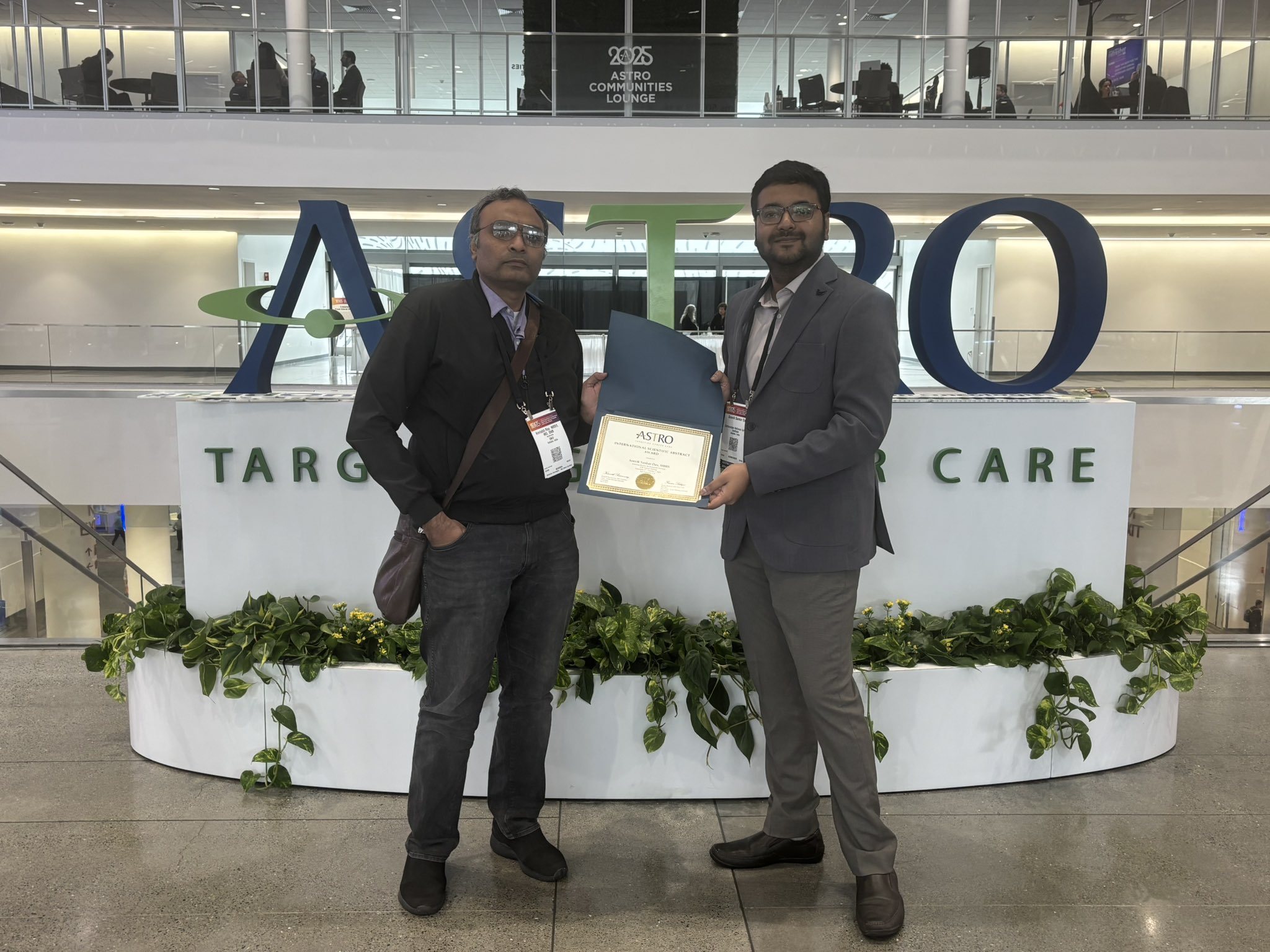
“Happy to support the efforts of Ethan Bludmir and Alex Sherry as the EXTEND pancreas basket publications wins the ROI pub award ASTRO annual meeting. Onwards as we enroll the phase III EXPAND trial led by Ethan.”
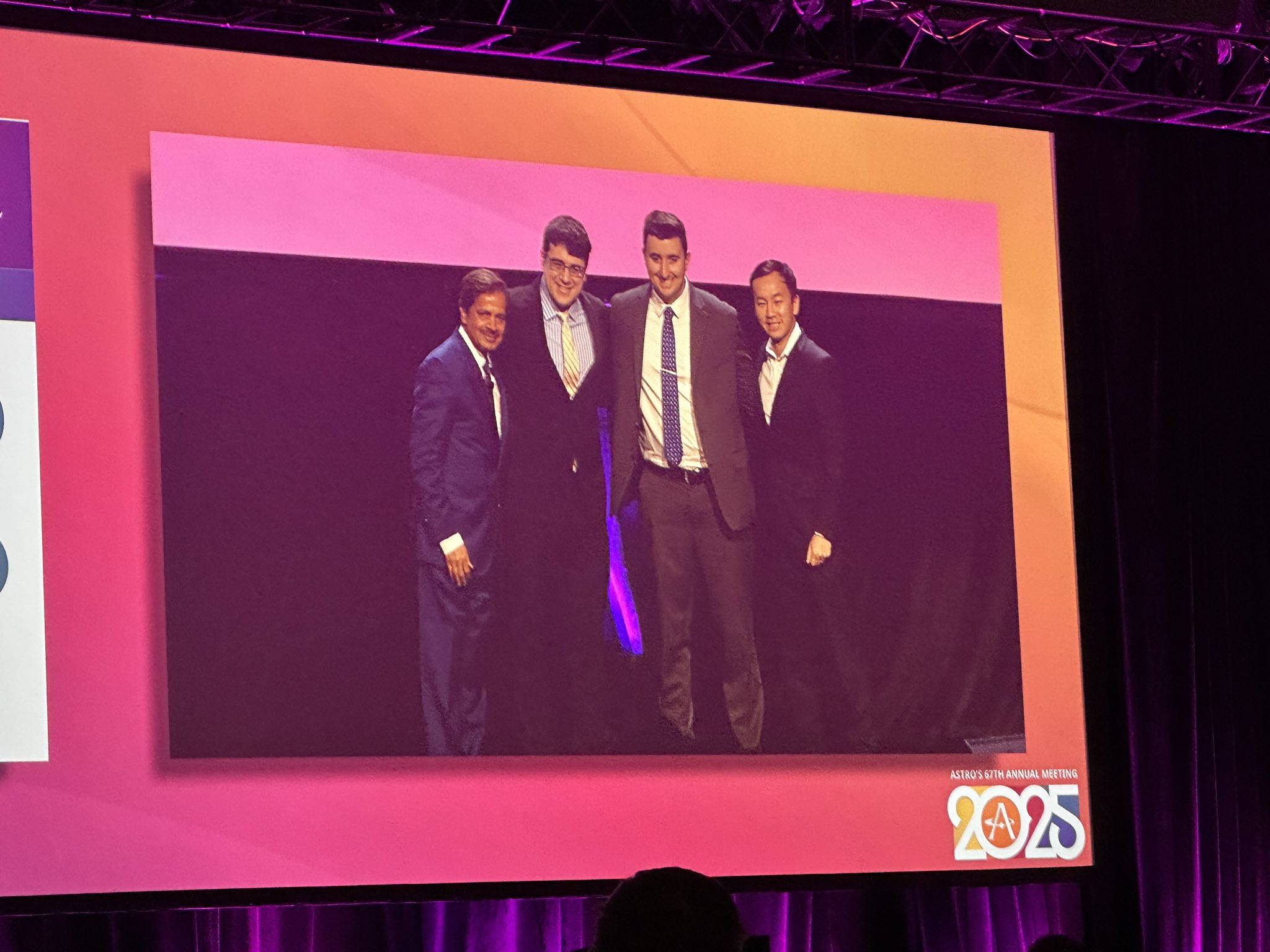
“LIVE at the ASTRO25 ROI awards: Rituraj Upadhyay, MD, receives the 2025 Publication Excellence Award. Congratulations Dr. Upadhyay!”
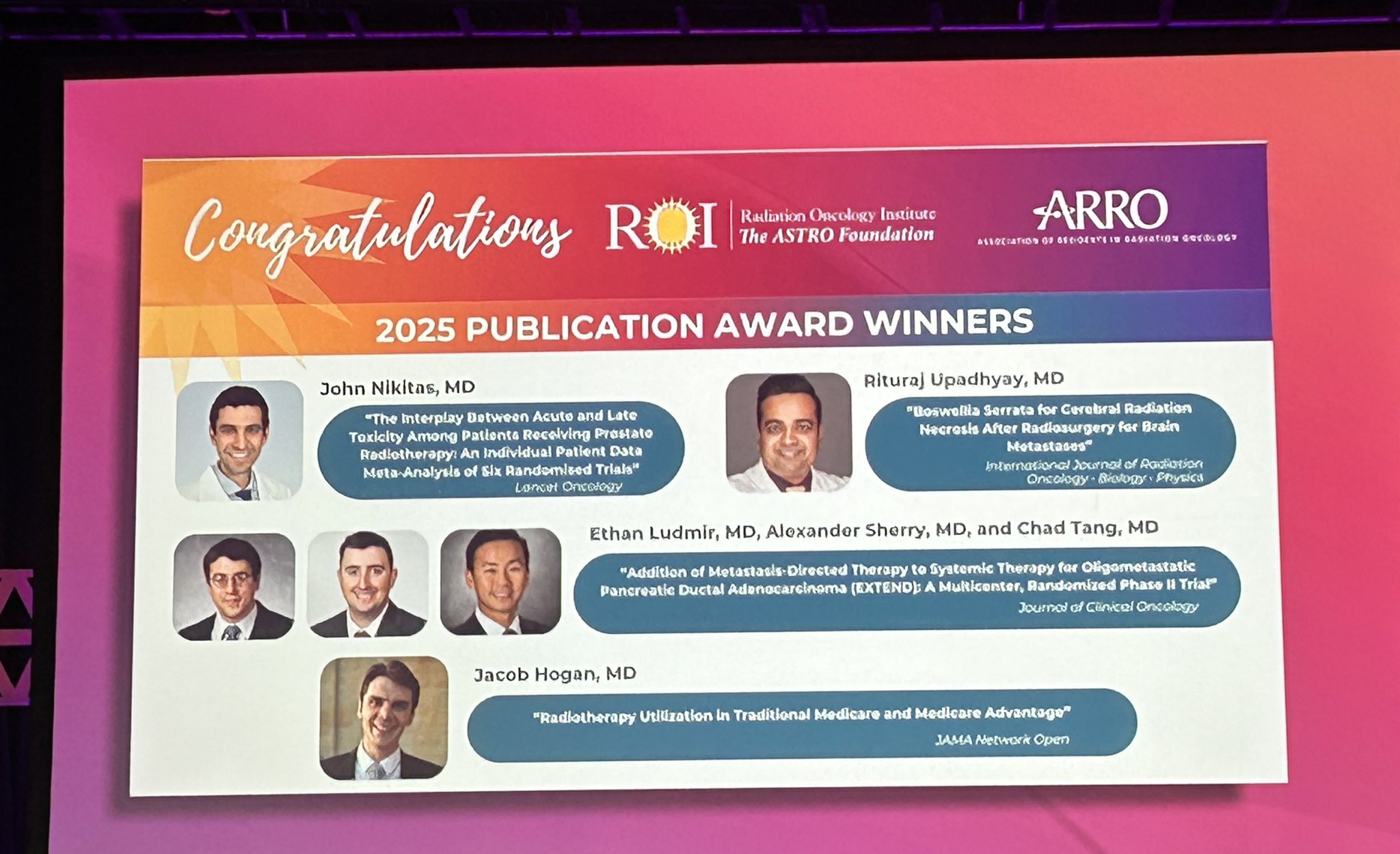
“Thank you to ASTRO and BCRF for this travel award to attend the annual meeting! It has been an incredible experience to learn and connect with others in this specialty. And a major thank you to my mentors who supported my application!”
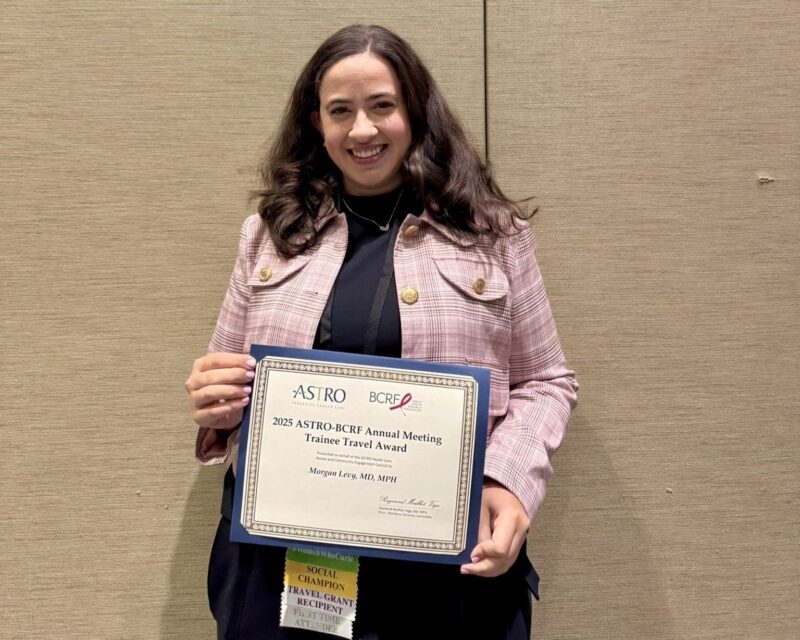
“When ACRO – American College of Radiation Oncology & ASTRO collide with our annual ACRO Resident Committee
lunch at ASTRO2025! So fun to have people meet in person after our many zoom meetings! Can’t wait to see everyone in person for ACRO2026 in Orlando!”
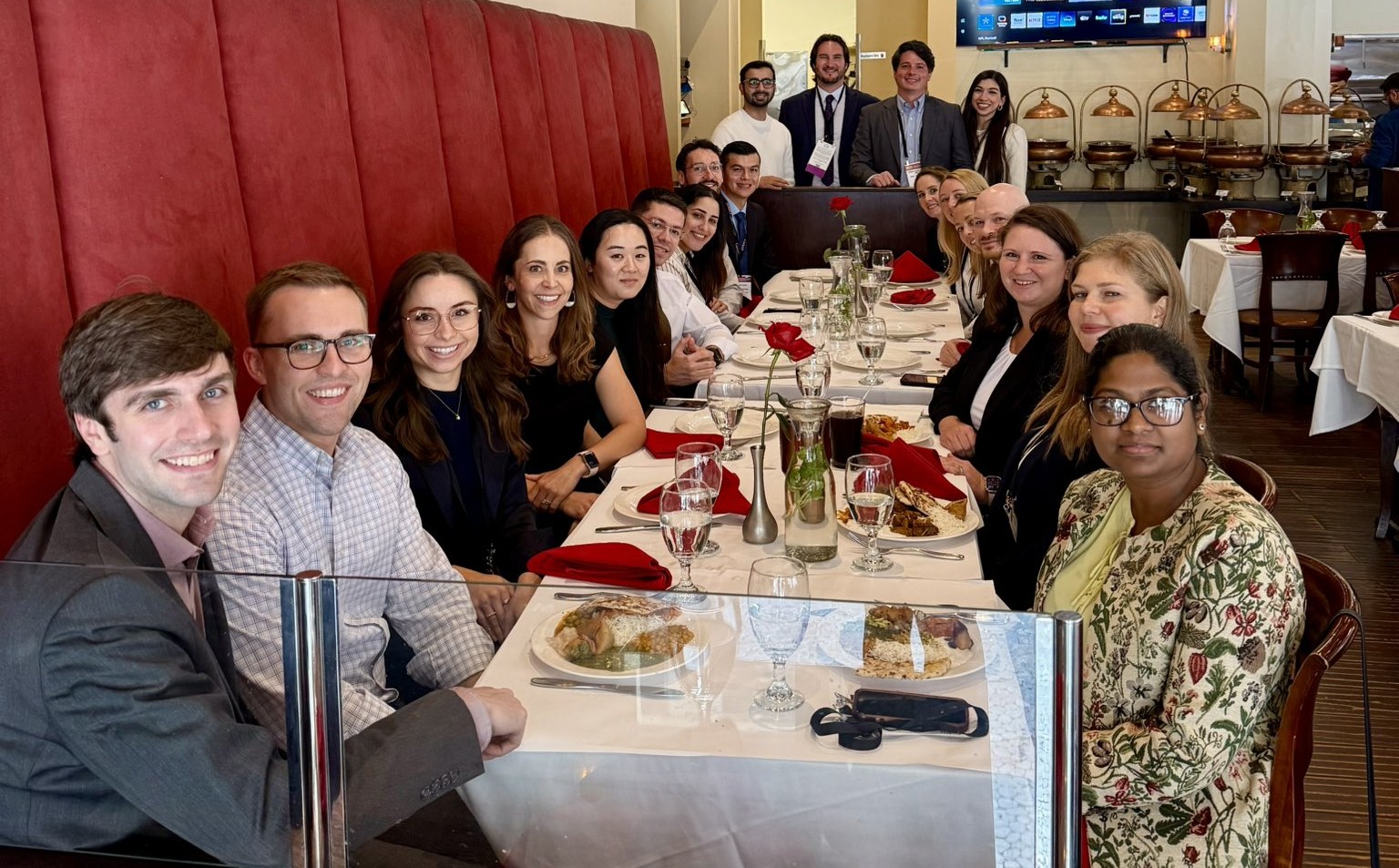
“Still thinking about Dr. Rahul Tendulkar insightful talk on burnout during ASTRO2025. Grateful to ARRO for including such an important discussion in the panel, and to leaders who continue to open these essential conversations in our field.”
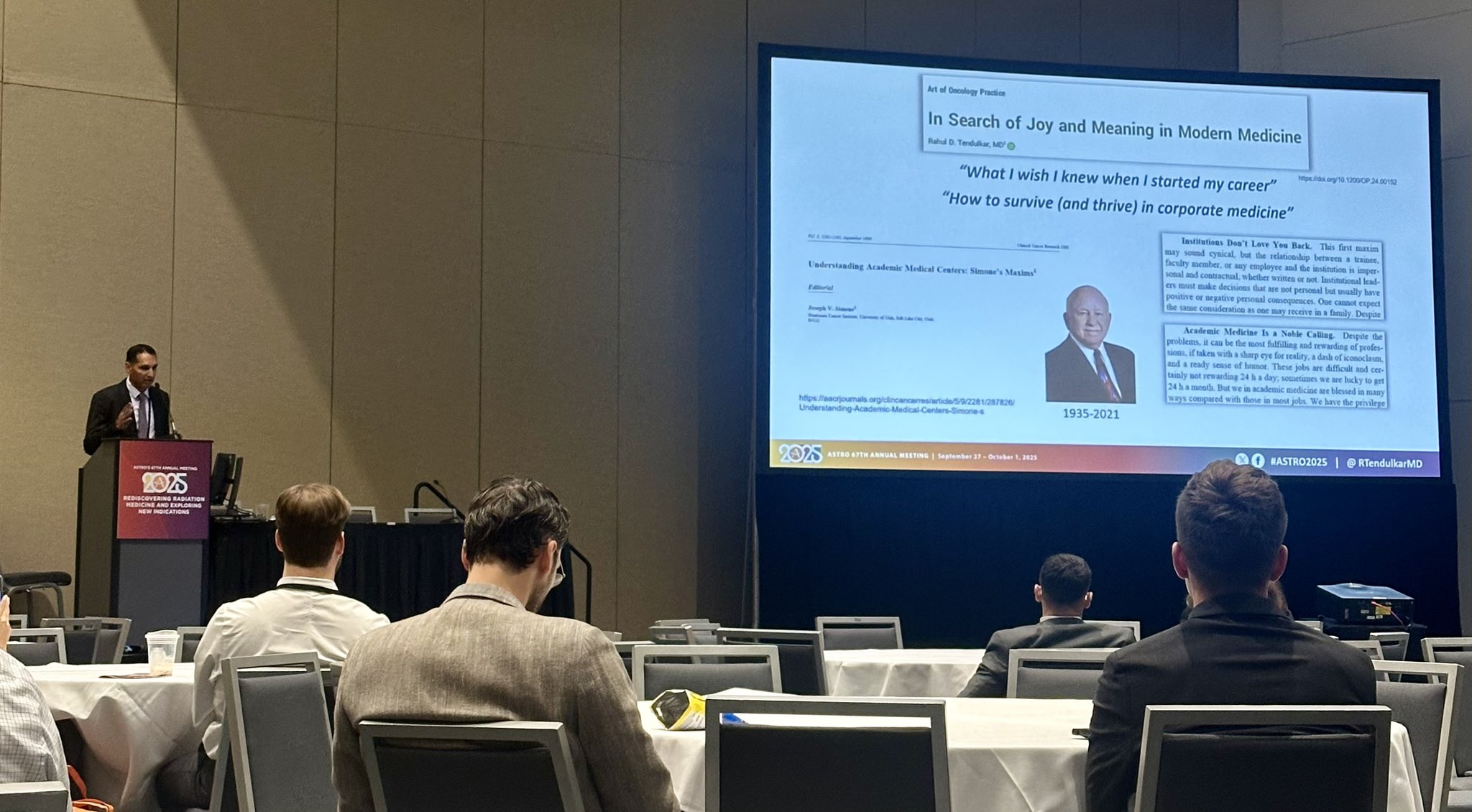
WashU Medicine Radiation Oncology:
“Another milestone for the WashU Medicine WashU Cardiology collaboration STAR for ventricular tachycardia – 10 yrs after poster presentation, Phillip Cuculich and Cliff Robinson give the keynote at the ASTRO25 Presidential Symposium! Amazing!”
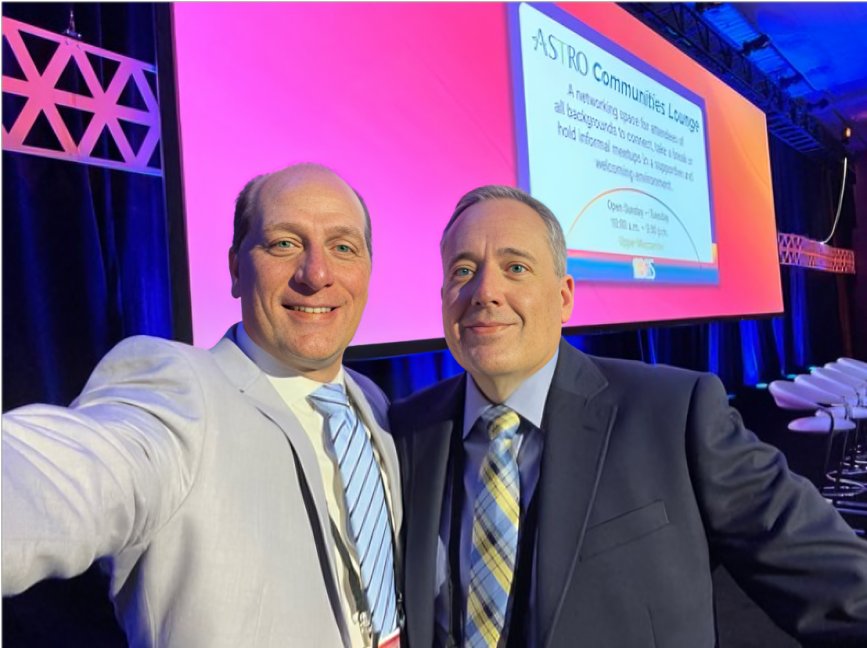
“Unimaginable journey with the greatest mentor. All set for Plenary Presentation of BART trial at ASTRO25!”
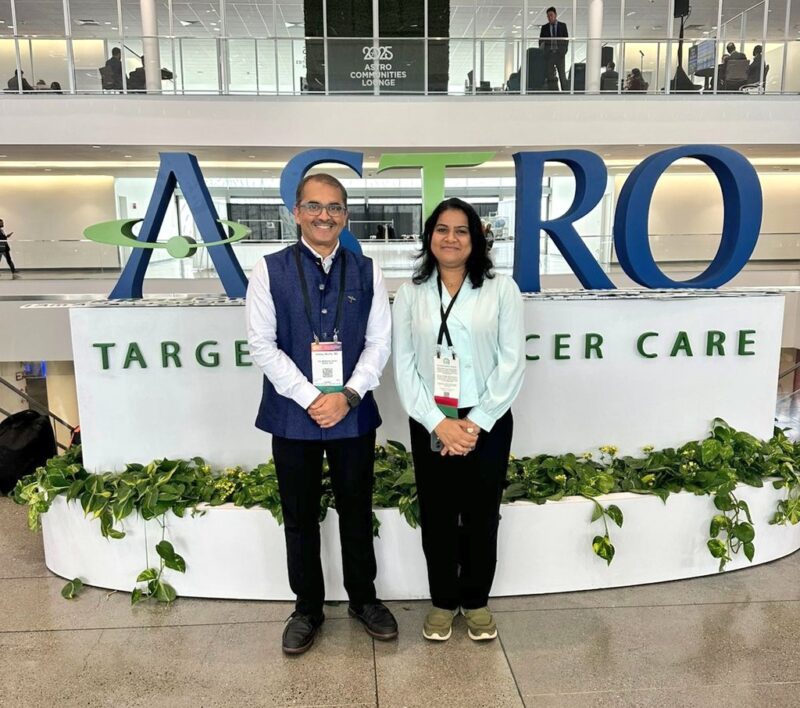
“NRG GU005 SBRT vs hypofractionated radiation for intermediate risk prostate cancer.
Improved Rectal tox, Sexual fxn, and Urinary incontinence with SBRT. Slightly worse BCF with SBRT. Maybe need 40Gy/5 or Flame boost instead of 36.25/5”
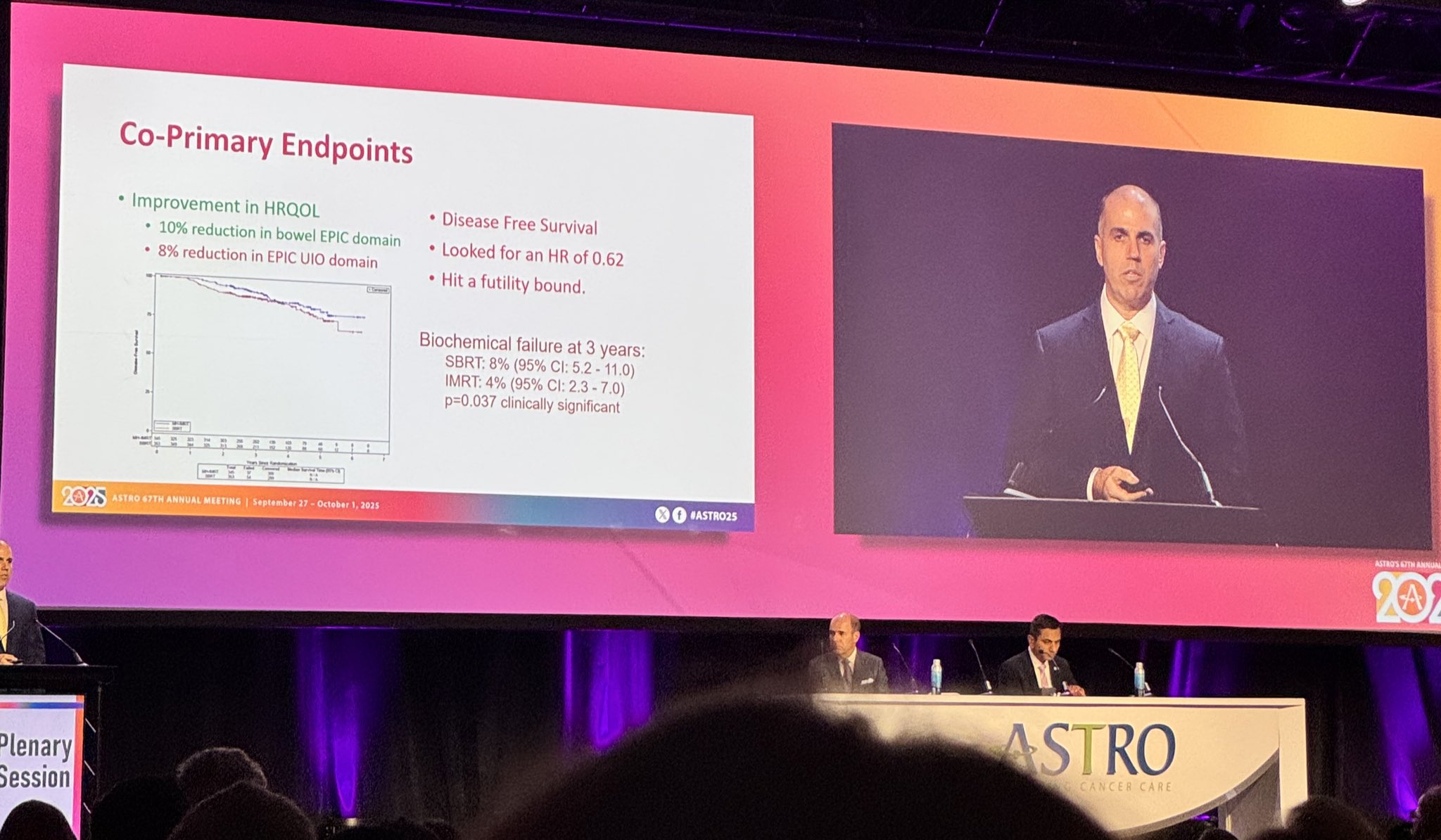
“Joshua D. Palmer gives excellent overview of imaging available for diagnosis of recurrence vs. necrosis.”
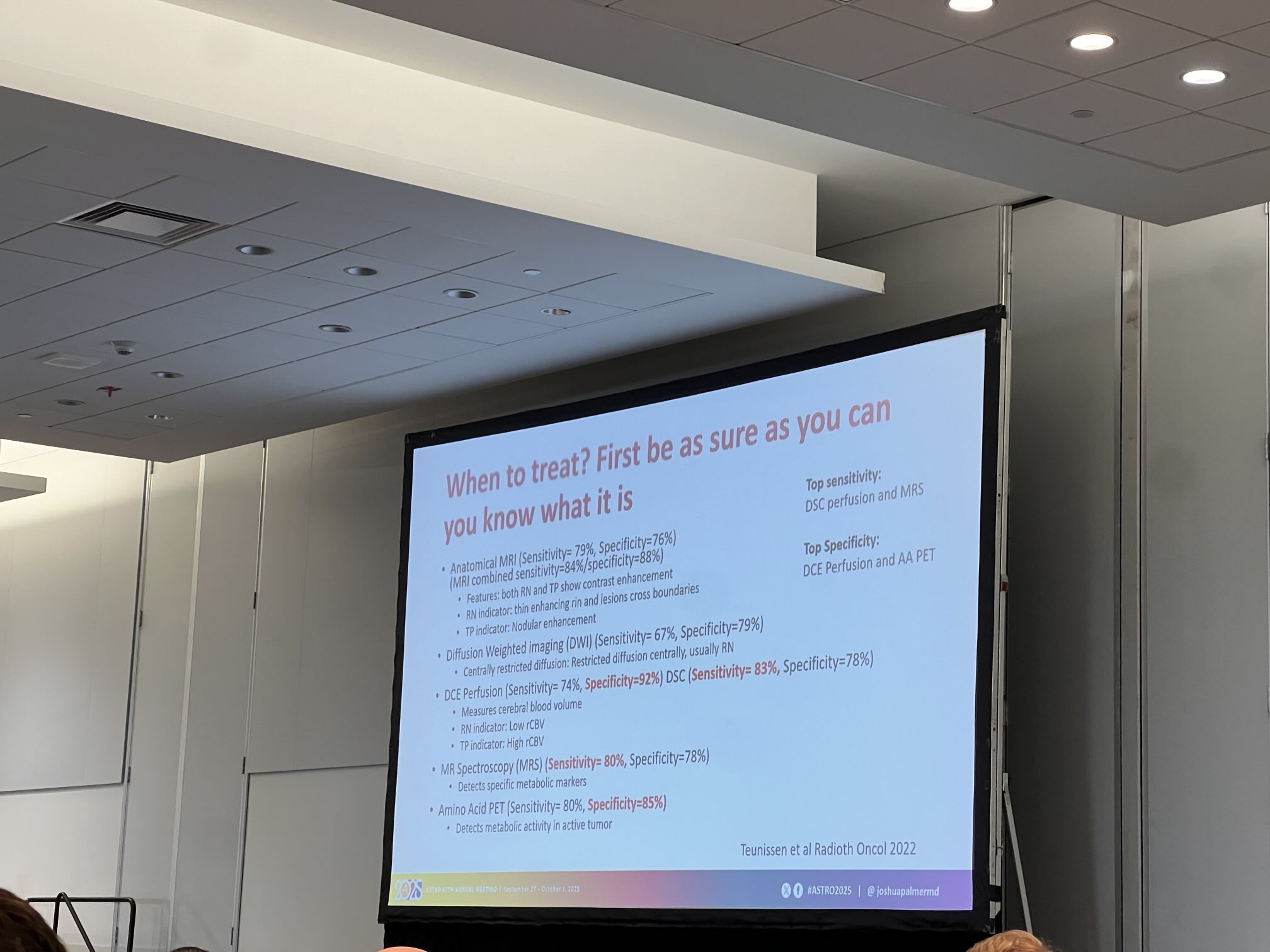
You can also read:


